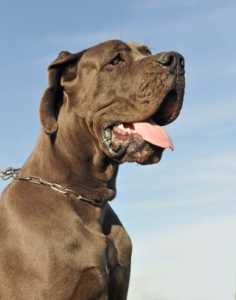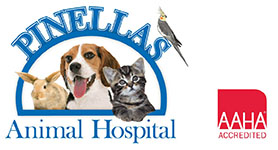Commitment to Care: Bailey

Meet Bailey, a two-year-old Great Dane. Bailey recently spent time visiting our kennel facility while her parents were away. A couple of days into her stay Bailey ate her breakfast and shortly afterwards started dry heaving and trying to vomit with nothing coming up. This happened on a Sunday with no doctors at the hospital, but our ever-vigilant kennel technicians alerted Dr. Wallen, the doctor on call, who immediately came and took an x-ray of Bailey’s swollen stomach. Dr. Wallen suspected a life-threatening condition called gastric dilatation-volvulus (GDV) or bloat. The recommended treatment for bloat is surgery to deflate and reposition the twisted stomach which would mean transferring Bailey to a specialist hospital.
Bailey’s surgery went well, but just to be safe Dad wanted her to stay with us for a few extra days so she would relax and rest and give her time to start healing. Bailey was put on a restricted diet of small meals consisting of bland wet food to help settle her stomach, along with restricted activity to avoid opening her stitches. After a few days she was able to go home to heal before having her sutures out. At her suture removal appointment, her incision looked good and did not require any additional treatment. Bailey is now back to full health and enjoying life as normal once again.
What is Bloat?
Bloat is sometimes referred to as the ‘mother of all emergencies’, as untreated gastric dilatation-volvulus (GDV) can be fatal to a dog within hours. Bloat happens when gas or food stretch a dog’s stomach. GDV happens when the distended stomach rotates, trapping the gas inside which in turn blocks off the stomach’s blood supply.
Extremely painful, there does not seem to be one cause for GDV although swallowing air plays a part. Heavy exercise after a meal could also be a trigger too. The exact cause of GDV has not yet been established. Preventing bloat is hard as there are so many things that may play a part in it.
Signs of Bloat in Dogs?
- Swelling in Abdomen
- Salivation
- Restlessness
- Pacing
- Painful abdomen
- Overall look of distress
- Retching or attempts to vomit with no success
- Excessive drooling
- Panting or rapid breathing
- Collapse or inability to stand
